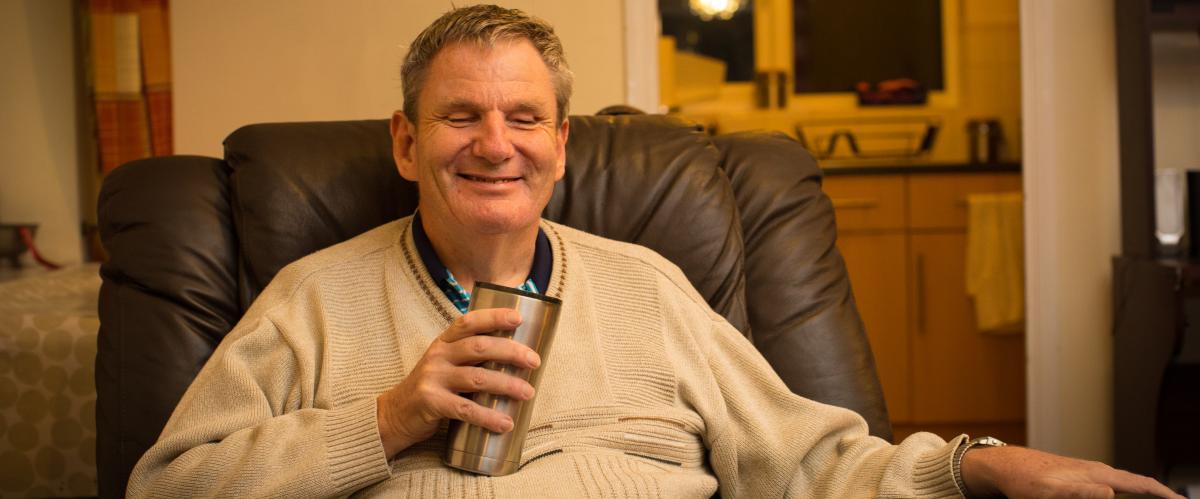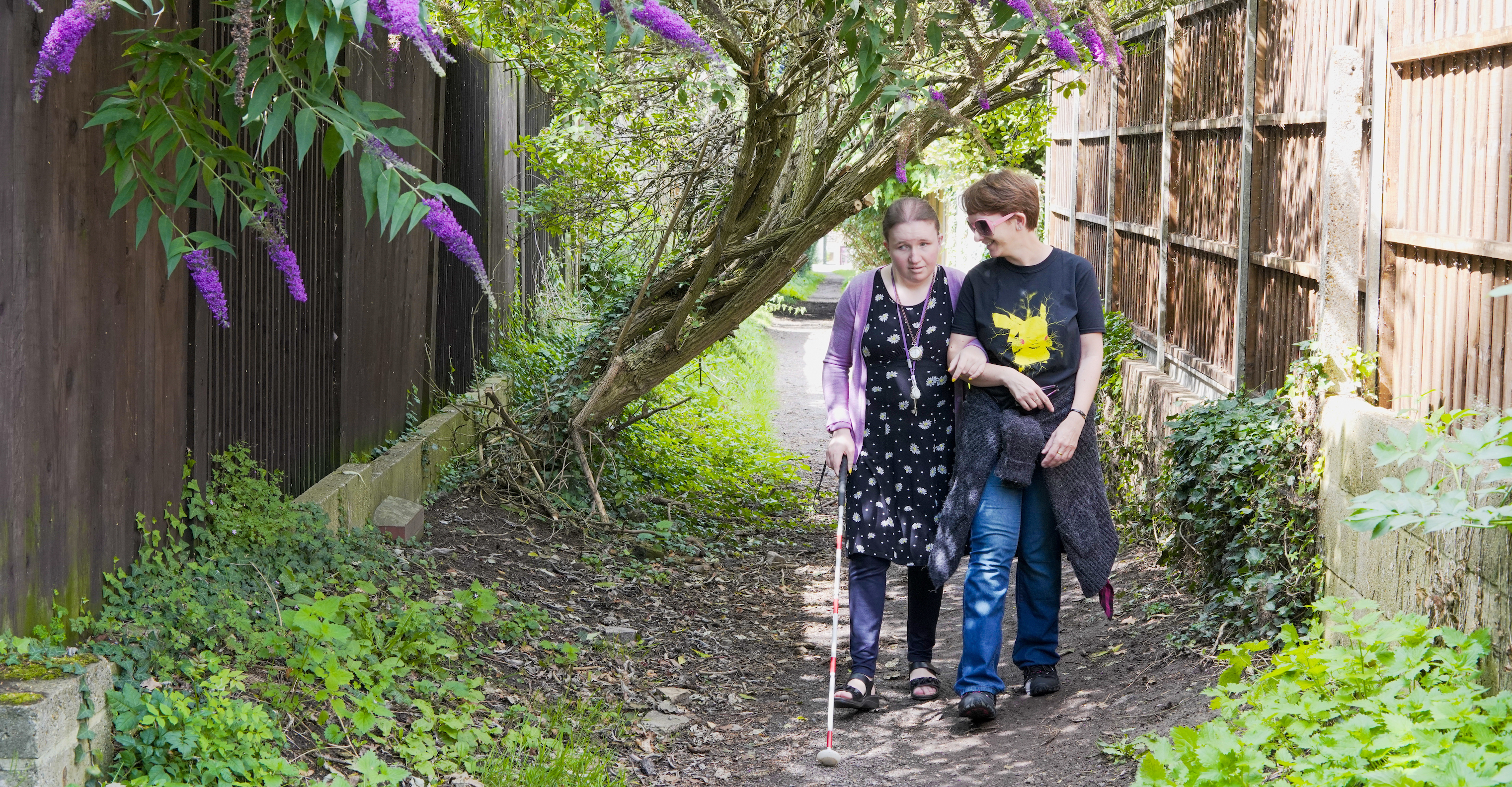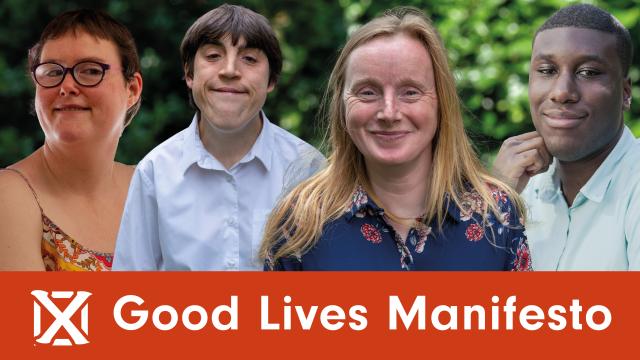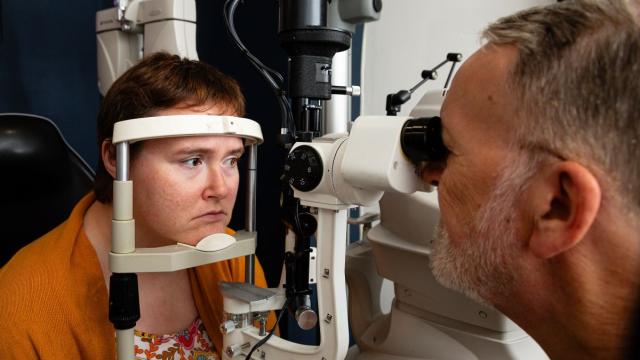
Making vision rehabilitation more inclusive
SeeAbility vision rehabilitation specialist, Aylee Richmond, blogs about vision rehabilitation for people with learning disabilities.
At SeeAbility we are the only learning disability charity that employ our own team of vision rehabilitation specialists to ensure that everyone we support can access vision rehabilitation services tailored to their needs. If you have a learning disability you are ten times more likely to have serious sight problems and the majority of people we support at SeeAbility have a visual impairment, often alongside multiple health conditions. This means that they need a specialist approach to ensure that their sight loss needs are optimally supported.
Accessing an eye test presents a significant challenge when you have a learning disability, and if there is something wrong with your vision you then need to negotiate the eye clinic to find out what’s happening. After further examinations and possible treatments many people may be left with serious sight loss that affects every part of their life. What happens then? What services exist to help support people with a visual impairment? It can be a minefield to try and find the right help, especially if you have complex needs.
Vision Rehabilitation Services exist around the UK and provide assessment, rehabilitation interventions, equipment and more to enable people with sight loss to rebuild their lives. These services are increasingly stretched with many more people predicted to need support in the future, especially in light of an aging population. However this doesn’t mean that people with learning disabilities should miss out. Vision Rehabilitation Specialists are a little known profession that provides these services to visually impaired people, and although many people will have additional health needs, people with learning disabilities can sometimes struggle to access Vision Rehabilitation. Often, this can be because Vision Rehabilitation is not a well known service within the learning disability sector or is thought to be a service that cannot help a person with multiple disabilities. Nothing could be further from the truth.
We provide vision rehabilitation assessments to everyone at SeeAbility, we explore their eye care and vision needs and establish which interventions are needed. Functional Vision Assessment plays a key part in this process as we need to know what someone can see so that we know how to support them. People with complex communication needs often are unable to tell us what they can see, so as Vision Rehabilitation Specialists we spend time observing and assessing their functional vision which then influences how the person is supported.

Vision Rehabilitaiton Specialists also provide support with teaching Independent Living Skills, enabling people to be safe in their own homes. This includes cooking skills such as peeling, chopping, grating, pouring, using the oven, hob, microwave or airfryer. Whether it’s making a cup of tea, baking a cake or aspiring to cook a roast dinner we can help make these skills a reality. We also support learning everyday tasks such as using the washing machine, using shower controls, hoovering or identifying money. All of these tasks and more are achievable without sight and with a learning disability, you just need the right help from a Vision Rehabilitation Specialist.
How do visually impaired people get around safely? The answer is Orientation and Mobility training. This can be anything from sighted guide support to learning how to use a long cane. We can help orientate people to new environments or learn to move around their homes safely. We also provide outdoor mobility training which can include using a cane and learning local routes to the shops, pub, café or restaurants. Using public transport or help with wheelchair guiding is also something we provide support with. Vision Rehabilitation Specialists are the ONLY qualified professionals to provide orientation and mobility training.
We all need the ability to communicate and Vision Rehabilitation enables people living with sight loss to find the right way for them. Many people living with sight loss benefit from strategies to aid their communication. We can help refer to low vision assessments and aids (such as magnifiers and lighting), advise on font or picture size, using Smart phones and magnification or speech software. Many people use Braille too, even if they have a learning disability. As we support a number of people with learning and physical disabilities we can also advise on assistive technology such as switch systems.
Sight loss friendly environments are so important. Want to know how to make the best use of colour, lighting or surfaces? Talk to Vision Rehabilitation Specialists in your area about an environmental audit to ensure your home is right for your needs. We can advise on lighting, colour, floor surfaces, layout, appliances and more.
Lots of people with learning disabilities need extra support to enable them to live independently. Training for support teams is essential so that they are skilled in supporting people with sight loss. This could be anything from sighted guide training to supporting independent living skills and enabling independence. SeeAbility believes everyone supporting people with complex needs should undertake a form of visual impairment awareness training.
Vision Rehabilitation plays a critical part in promoting independence and improving quality of life. It should always be viewed as an inclusive service, available to everyone.




